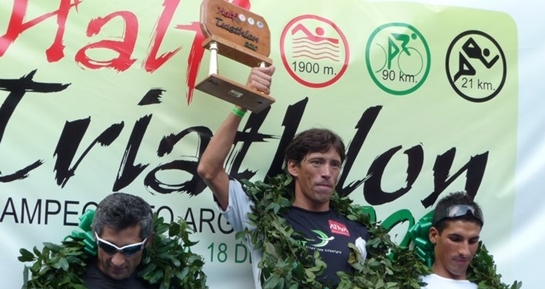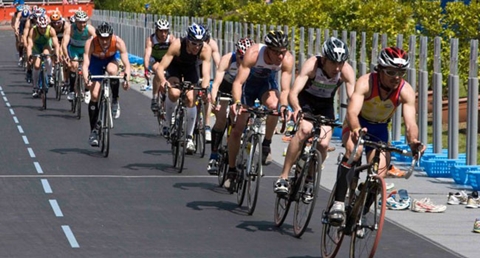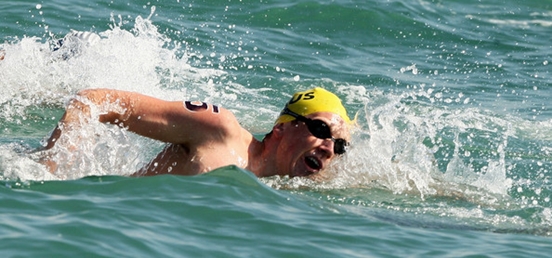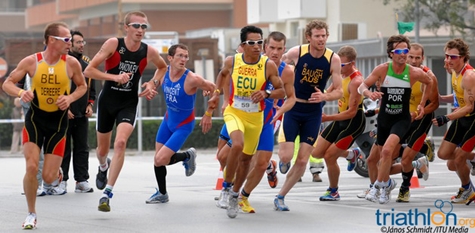Psychological, Emotional and Structural Healing
Who in all their years as an amateur or professional athlete has not suffered an injury. Either a small injury which can be resolved with a simple reduction in training or a couple of days without training being able to quickly resume the training and even compete as if nothing has happened. Or a more serious injury that forces us to stop our daily training and affects our other daily activities.
If it's a simple injury, your coach or training friends might have some good advice on how to quickly help the injury to heal. Depending on the nature of the injury, treatments such as massage, heat, ice, hot springs, stretching are often recommended to heal and prevent injuries that could later interrup training.
If it's a serious injury, where we are forced to stop the activity , we should take into account all aspects of healing including the psychological and emotional side of the athlete, in addition to the structural nature of the injury. For best healing results relating to the structural part of the injury input from specialists like your physician, physiotherapist, chiropractor, traumatologist, acupuncturist, nutritionist and coach will give you a full range of knowledge.
Emotional Progress to Speed Recovery
Positive Mindset. Returning to the emotional side of healing, any disruption in our ability to train can generate much anxiety. The inability to train causes grief and discouragement, feelings that strongly influence the recovery process. I believe that there is no doubt that mood - a happy person - generates more antibodies that will help us in a speedy recovery. For that reason, we should adopt a positive emotional mindset activity to prevent harming more the degree of injury and speed recovery.
Cross Training - Making the Best of it. To insert the disciplines between swimming, cycling and run will be easier to maintain activity. For instance, a runner with a tendonitis in the Achilles tendon will be able to swim without harming the injury. A swimmer with Bicipital tendinitis will allow us to pedal and run. In this way we will maintain not only our physical condition as we will also maintain our active body helping in a faster recovery.
Emotional Progress instead of Setback. It is important that the athlete feel they are not reverting or stagnant in training. Seek ways to show progress in other disciplines is a way of keeping the desire, causing a greater enthusiasm for recovery and encouraging adhering to the corresponding treatment without falling into the half-hearted duldrums. We accept the pain of the past by our coaches hard sessions, and similarly need to support the pain caused by the impediment of not being able to train.
We can also consider the recovery period as a sports holiday - rest, is not the same, but will help turn the bitter drink of the moment.
Gradually Increase Volume and Intensity. Once recovered we are eager to return to the daily work of the training, but must remain emotionally patient. It's natural to want to make up for lost time. However, the rush to full training can cause a relapse in injury or cause a new injury. It should not be forgotten that in the standing time even though we have maintained an activity, our body has lost physical condition. Gradually resuming training allows us to test whether we have indeed fully recovered. Sessions short and soft will give us security without falling into relapse or exhaustion. Once you have the confidence that you are 100% recovered, you can increase the volume and intensity of the work. It is always better to wait a few more days of recovery, some sessions of treatment, taking safe and firm steps.
Our Uniqueness. The seasons are long. There are many skills to employ that will accelerate a logical process of recovery. Take into account that each athlete has their own time and not fall into the comparison of the recovery of others. Our body is unique.
Ezequiel Morales is Professional Triathlete from Argentina competing as an athlete for over 20 years, 10 years as a triathlete. Ezequiel holds several national and international titles, including South American, Pan American Games and World Championships. Ezequiel placed 12th at Ironman 70.3 Panama 2012, 1st at the 2011 Ironman Wisconsin, 3rd at Ironman Bazil 2011, 1st at the Super Tria, Half Ironman, Piriápolis, Uruguay at Ironman Brazil 2010, 1st at Ironman 70.3 Penha, Brazil 2010, and 40th at Ironman World Championships in Kona 2010.
OF NOTE, Ezequiel has had many moments of sadness as an athlete, including an accident in 2006, when he was hit by a truck while training, causing him fracture of the basin, leading to a emergency surgery. Despite being diagnosed with 8 months of rest and rehabilitation, he returned to competition only 4 months after the accident, getting a second place, a mark of his attention to details about his recovery, enthusiasm and love in the sport.






